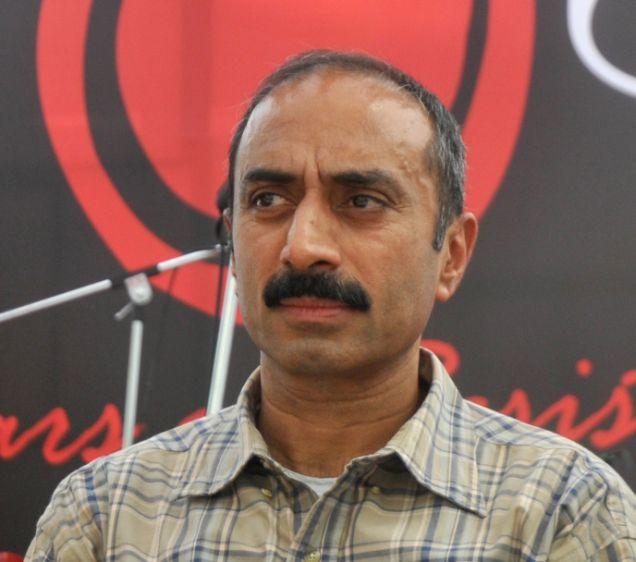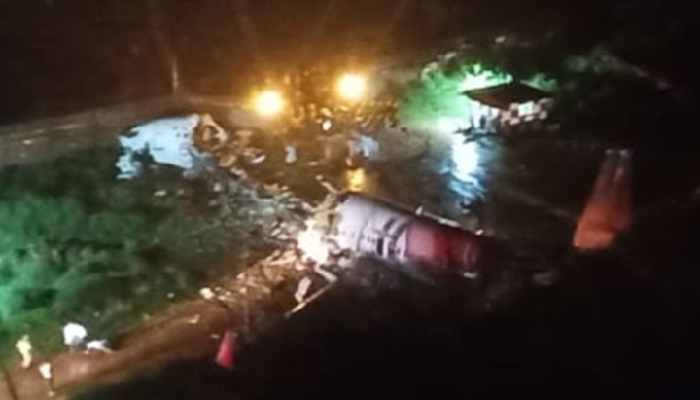
Ahmedabad, May 17: The suspended IPS officer Sanjiv Bhatt says the closure report submitted by the Supreme Court-appointed Special Investigation Team (SIT) only confirmed his long-standing apprehension that it was only working to “shield” Chief Minister Narendra Modi and other “powerful persons” from legal punishment for their involvement in the 2002 Gujarat pogrom.
In a letter to SIT Chairman R. K. Raghavan on Wednesday, Mr. Bhatt said it was “outrageously shocking” that even after his repeated requests the SIT did not issue any timely direction to the State government for preservation and production of vital contemporaneous documents, and allowed it to selectively destroy the potentially incriminating documents “with the tacit blessings of the SIT.”
Claiming that the closure report made it apparently clear that the SIT was carrying out “further investigation” even after the September 12, 2011 Supreme Court order to submit its final report to a competent metropolitan magistrate's court in Ahmedabad, Mr. Bhatt said it was done “with the sole purpose and motive of shielding Mr. Modi and other powerful accused persons from legal punishment.”
Mr. Bhatt said the SIT was not required to investigate the observations made by amicus curiae Raju Ramachandran but it deliberately did so to find loopholes in his report and demolish his remark that criminal cases could be framed against Mr. Modi for allegedly creating communal disharmony under Sections of the Indian Penal Code.
Referring to a confidential letter — quoted by Mr. Ramachandran in his report — allegedly sent by the Under Secretary of the State Home Department to the SIT Chairman four days after Mr. Bhatt had met the amicus curiae in Gandhinagar, the suspended IPS officer said the “Janus-faced policies, as well as the collaborative machinations of the state of Gujarat and the SIT under your stewardship, once again stand exposed in this overt attempt at influencing the ongoing investigation against the Chief Minister and other powerful persons.”
The June 26, 2011 letter, in which the State government claimed to have “retrieved” several e-mails of Mr. Bhatt, said: “It leaves no room for doubt that it is a systematic and larger conspiracy, through Mr. Sanjiv Bhatt, involving top leaders of the Congress party in Gujarat, vested interests groups surviving on [an] anti-Gujarat campaign and electronic and print media reporters all of whom have started final efforts to keep the Godhra riot issue [a]live based on concocted facts and Mr. Bhatt, through all of them, is trying to build up a story at a stage when after almost 10 long years the honourable Supreme Court has virtually concluded the judicial proceedings after undertaking tremendous judicial exercise and [as] elaborately pointed out in the affidavit of the State government.”
The letter, Mr. Bhatt claimed, was clear proof of the State government, which should be the prosecutor, trying to influence the ongoing investigation and shielding Mr. Modi and the other accused.
Mr. Bhatt took strong exception to the SIT demolishing his two fax messages dated February 27 and 28, 2002, as “concocted and unreliable.” He gave long explanations to justify his claim that the messages he sent as Deputy Commissioner of the intelligence branch then were real and established that Mr. Modi was continuously informed of the developing serious situation outside Gulberg Society but the Chief Minister refused to take any action to pre-empt the strike, and that the then Ahmedabad Police Commissioner P. C. Pande was guilty of dereliction despite being cautioned about the possible repercussions of the “Chief Minister's decision” to bring the bodies of the train carnage victims to Ahmedabad on the Gujarat Bandh day.
Mr. Bhatt said Mr. Raghavan, as a retired senior IPS officer, should have realised that the grounds the SIT had shown for calling copies of his fax messages concocted were not justified. He said the reasons that the messages did not bear any security classification, that they carried serial numbers different from the number allocated to the intelligence agency on these days or that the serial numbers were typed, instead of being handwritten as was the usual practice, were inadequate to declare his claims unreliable.
‘Nothing secret'
Attaching copies of some other fax messages, Mr. Bhatt claimed that all fax messages need not carry security classification by default as it was decided on the contents. The messages he sent did not contain any information of a confidential or secret nature warranting their bearing the security classification. It was a common practice in the Gujarat police to assign serial number 100 for urgently numbering out-of-sequence communications in emergency situations whenever it was inexpedient to obtain the specific number of the dispatch sequencing. His messages shown as carrying the serial number 100 and other weak grounds adduced did not mean these were created later. But the SIT was making “overzealous efforts to undermine the credibility of the messages.”
‘Outrageously shocking'
Mr. Bhatt said the fact that the originals of the fax messages could not be traced in the official records only strengthened his long-standing apprehension that the State government had been selectively destroying the potentially incriminating documents, and despite his repeatedly cautioning the SIT about such possibilities, it allowed the government to carry on with its destructive action. It was “outrageously shocking” that the SIT in its final report dispensed with the issue of “non-preservation or destruction of material documents and records” in just one insignificant sentence that the “efforts were made to locate the dispatch register and [the] fax register of state IB control room, but the same had been reportedly destroyed.”
‘Bid to destroy evidence'
Mr. Bhatt said: “It is now become increasingly clear that agencies and offices working under the control of the State government of Gujarat have conspired to selectively destroy potentially incriminating documents and records pertaining to the Gujarat carnage 2002. It is also apparent that despite repeated requests, the SIT did not make any fruitful efforts for the production and/or preservation of crucial and relevant records and thereby indirectly facilitated the process of destruction of very vital evidence. The SIT under your stewardship has conveniently chosen to ignore the fact that such acts on the part of the State government or its agents would amount to offences under Sections 120-B (conspiracy), 201 and 204 of the Indian Penal Code.”







Comments
Add new comment